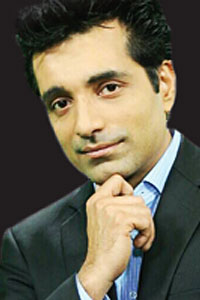
Less than 48 hours after the preliminary referendum results were announced, those in power appear to have started changing their minds and are now silent on whether they would return to the top position in the government if and when elections are held.
Yes, I am referring to none other than our Dear Leader, Prime Minister Prayut Chan-o-cha. Gen Prayut, who seized power in May 2014 and has been struggling to legitimise his coup on the international stage, has finally managed to say to the world that his actions were approved by the people after the referendum vote and the attached question were endorsed by a majority of the people.
In statements coming from the coup makers, it is becoming ever clearer that the initial claims to retain power by the National Council for Peace and Order (NCPO) seem to be working but, before jumping the gun, it is worth asking if they have really thought this through.
Why would Gen Prayut even think of becoming a pawn in the game of politics when he could remain on the fence and use the remote control that has now been approved by the people during the referendum process?

Umesh Pandey is Editor, Bangkok Post.
With the power in the new charter and the additional question that was approved, the nomination of the prime minister can now be twisted to make sure that people who are acceptable to all sides are appointed as the leader of the next government. With this kind of system, Gen Prayut may think twice about entering politics.
Over the next few months there will be a lot of talk about the current situation, what could occur in the future, and who the possible candidates are for the premiership. But what is assured is that the single largest non-elected body -- the Senate, will be the driving force and the trump card for the military to maintain control of the next government.
Even the mighty Pheu Thai Party, which managed to achieve an absolute majority in the previous parliamentary elections, would have a difficult time reaching the 251 threshold. All estimates show they would get anywhere from 210 to 220 seats while the second-largest party may get anywhere from 120 to 150 seats in the 500-seat parliament. This would mean that a coalition government would have to be in place and, if about 36 of these MPs are subtracted as they would become cabinet ministers, the passage of bills in parliament without the support of a third party would be next to impossible.
Although the military government had thought through many of the things they wanted to have after the passage of the constitution, giving a third party absolute control on each bill's passage would spell disaster in the long run.
It would also mean the workings of the government would be hindered as the basic quorum required for passage of the bills would be difficult to attain. Such shortcomings could be overcome in by-laws that are being drafted but these kinds of moves indicate there have been times when the people drafting the charter have been more concerned with short-term solutions than the longer-term benefits for the country.
With the power that would be bestowed on smaller parties, it is no surprise that the real power brokers are those who prioritise their own vested interests than those of the nation. As the country stands at a crossroads of what many are calling a "lesser" democracy than the previous two constitutions (1997 and 2007), one has to be content that at least the passage was smooth and all parties are accepting the results.
The price that our country is paying for peaceful coexistence is that we are under military rule and under Section 44 of the interim charter which empowers the incumbent prime minister with "super powers", thus avoiding any backlash.
But God forbid if our Dear Leader takes on the leadership role after the general election, as the situation could be very different. With no Section 44 to stop the anti-government movement, if Gen Prayut does take on the position of the premiership, he would be putting himself up for the opposition, whoever it may be, to grill him in and out of parliament.
The "super powers" he has had will not be there to help him and the country could eventually be back at a turning point. It is therefore advisable for Gen Prayut to continue sticking to the statements he has made in the past that he will not take up the job of prime minister even if he is asked to. He should simply say no to every party including the yet-to-be-formed one by the pro-coup cheerleader -- Paiboon Nititawan.
However tempting the position of the premiership looks, Gen Prayut would be wise to continue to decline. If he does not do so, we may see a repeat of 1992.
